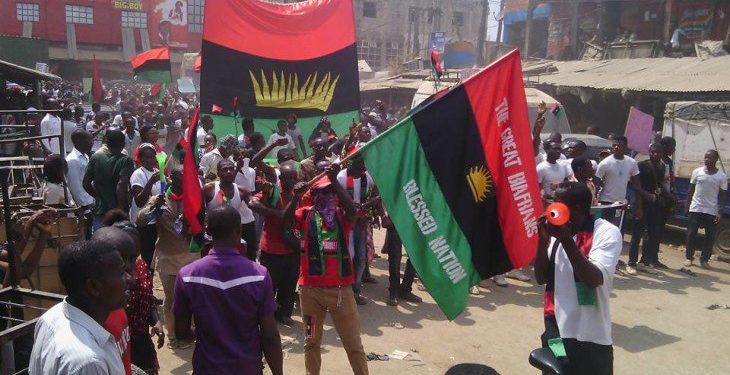Dr. Chike Obidigbo, an influential industrialist and elder statesman, contends that the Biafran Republic’s defeat during the Nigerian Civil War can be predominantly attributed to the lack of a robust media presence rather than the deficiencies of the military. Speaking from his home in Umunya, he emphasized the pivotal role media plays in shaping narratives and garnering support. He argued that if the media landscape had been as developed during the civil war as it is now, the fate of Ndigbo might have been significantly different. According to him, the disparities in media coverage led to the underreporting of atrocities against the Igbo people, which ultimately hindered international support and understanding of their plight.
Obidigbo also highlighted a self-centered mentality prevalent among the Ndigbo, which he termed “I before others” or “Ibo.” He posited that this mindset serves as a significant barrier to the collective growth of the Igbo community and urged for a shift towards a more inclusive “we” mentality. He argued that to achieve meaningful progress, the Igbo must replace the emphasis on individualism with a focus on unity and cooperation. He asserted that without a collective voice that resonates globally, the struggles and achievements of the Ndigbo would continue to be marginalized and disregarded by the world.
The elder statesman reflected on the historical context of the Biafran War, asserting that it was scarcely a conflict between Nigeria and Biafra alone; instead, he insisted it was a contest against British interests, which sought to suppress the emerging Igbo economy. Obidigbo argued that the lack of international awareness and media sympathy contributed to the challenges the Igbo faced during that tumultuous period. He lamented the absence of powerful media voices that could have been mobilized to advocate for justice, indicating that the absence of a strong media machinery was a crucial oversight that exacerbated their defeat.
In calling for a resurgence of bold and courageous elders within the Igbo community, Obidigbo admonished current leaders to inspire the youth through honest commentary and meaningful activism. He emphasized the importance of hard work and dedication over the pursuit of wealth, suggesting that the Igbo should prioritize collective progress and development. He criticized the current state of affairs where elders have become reticent and the youth are left to take the lead without adequate guidance, which he believes leads to a fragmentation of the community’s values and goals.
Obidigbo further voiced concern over the ongoing challenges faced by Igbo youth, who increasingly find themselves migrating abroad in search of better opportunities. He characterized this trend as a symptom of a deeper societal malaise, suggesting that the lack of investment in youth development results in a wasted potential that the Federal government seems to exploit. He argued that responsible leadership should focus on preparing the younger generation to become self-sufficient and to thrive despite the obstacles they face, rather than allowing them to be lost to emigration due to unfavorable living conditions at home.
Lastly, Dr. Obidigbo reiterated the crucial need for the media to step up as a powerful tool for change within the Igbo community. He posited that the media wielded significant influence in shaping political narratives and preferences, often favoring certain groups while relegating others to obscurity. He reflected on historical instances where media narratives played a role in political outcomes, arguing that the Ndigbo must harness this power effectively to propel their interests forward. He highlighted the missed opportunity during the Biafran War, suggesting that had social media existed at the time, the overwhelming injustices suffered by Ndigbo could have garnered the necessary international attention to alter their fate. Obidigbo’s insights present a call to action for unity, strategic media engagement, and a collective focus on the pivotal role of leadership in fostering community development.














